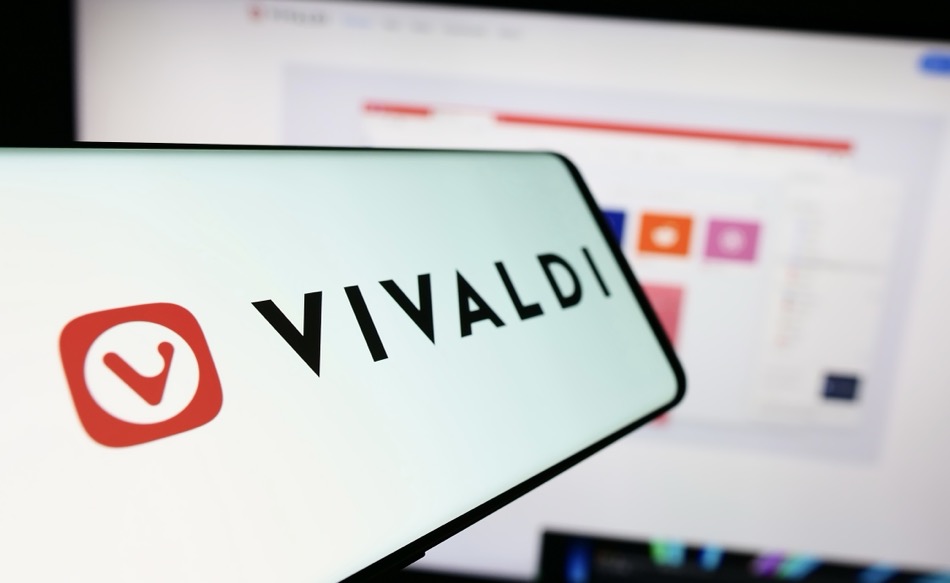
Vivaldi CEO Jon von Tetzchner reaffirmed the company's commitment to human-centered web browsing, distancing the browser from the growing industry trend of integrating AI agents into core navigation features.
The announcement positions Vivaldi as a vocal critic of AI-driven automation in browsers, tools that, while marketed as time-savers, risk reducing user agency and exposing users to new types of security threats.
The statement comes amid a wider industry shift where major players like Google and Microsoft are embedding AI assistants (Gemini and Copilot) directly into browsers. These tools summarize content, prefetch actions, and can even traverse websites or fill out forms on a user's behalf. Vivaldi's leadership, however, sees this evolution not as progress but as a dangerous drift toward passive consumption and centralized control over how users experience the web.
Founded by Opera co-founder Jon von Tetzchner, Vivaldi Technologies has built its reputation on privacy, user autonomy, and extensive browser customization. Unlike competitors racing to position themselves as “AI browsers,” Vivaldi is taking a starkly different path, rejecting the integration of large language models (LLMs) for tasks such as summarization, chatbot support, or automatic form filling, at least until these systems can meet rigorous standards for accuracy, transparency, and safety.
This position echoes recent concerns raised by security researchers about the safety of AI-native browsing. Just last week, Guardio Labs published findings that agentic browsers like Perplexity's Comet can be easily manipulated by phishing schemes, fake storefronts, and prompt injection attacks. In controlled experiments, Comet failed to recognize malicious sites and proceeded to act on fraudulent instructions, purchasing products, clicking scam links, and even initiating malware downloads, all without user intervention.
The growing dependence on AI to mediate the browsing experience also carries broader implications for the health of the open web. Vivaldi's announcement references a Pew Research study showing that AI summaries significantly reduce click-through rates to original sources. This undermines the visibility of independent publishers, creators, and researchers, the very people who generate the content AI tools rely on. As AI agents increasingly intermediate access to information, the web risks becoming less diverse, less decentralized, and more susceptible to manipulation.
Vivaldi's critique isn't a rejection of AI in principle. Von Tetzchner acknowledges the potential for machine learning to enhance features, provided it doesn't compromise privacy or intellectual property. But he draws a firm line: Vivaldi will not implement AI features that disempower users, diminish the value of human exploration, or reduce engagement with original content.
Vivaldi remains one of the few browsers that explicitly rejects data monetization, maintains strong anti-tracking features, and allows deep customization. It is included in our list of the 12 Secure Browsers That Protect Your Privacy in 2025, and its recent integration with Proton VPN has further solidified its position as a top choice for privacy-conscious users.







Thank you for your great work! Nice article!
Well done Vivaldi team!
Unfortunately Vivaldi’s privacy policy makes it clear that Vivaldi browser COLLECTS AND SENDS metadata to the company’s servers EVERY 24 HOURS to determine the number of active users according to their physical location.
“When you install Vivaldi browser (“Vivaldi”), each installation profile is assigned a unique user ID that is stored on your device. Vivaldi will send a message using HTTPS directly to our servers located in Iceland every 24 hours containing this ID, version, cpu architecture, screen resolution and time since last message.” – Vivaldi Browser privacy policy.
I thought Vivaldi was designed with privacy in mind …
Fantastic stance, Vivaldi!
Hi. I was regular reader of RestorePrivacy and I like how neat this website seems to look and continue to provide valuable information.
Could you do a browser comparisons for 2025 since your last comparison put Brave browser on number 1 and vivaldi as not recommended as it had privacy issue. I think brave has become more bloated over the years with bitcoins and everything.
I use Waterfox browser for everything but I use vivaldi to use google services since it uploads faster in a browser that identifies themselves as chrome.
Yep, will do. Thanks for the feedback.
Thanks for the response. Also if I could suggest one thing for this website to be more user-friendly is to separate latest news by Privacy and Cybersecurity scroll-able left and right in a card in the homepage.
Since there will be very few latest news going on in the privacy world so articles related to privacy seem to get buried very quickly under security articles which personally aren’t very important to me since I don’t work in IT world. Computer is more of a hobby to me since I was little…I’m 30 now.
Also youtube and google-drive speeds were slow in Un-googled chromium compared to vivaldi so I made a switch to vivaldi. I’d do anything to avoid chrome.
And firefox’s container tabs to isolate web-browsing habit has been browser heaven for me since I started using it since few months. I can’t live without it now.
The article says this:
” It is included in our list of the 12 Secure Browsers That Protect Your Privacy in 2025, and its recent integration with Proton VPN has further solidified its position as a top choice for privacy-conscious users.”
This is not true. Vivaldi browser was never praised and promoted as a secure recommended browser on this website or on the previous one.
We’re in the process of updating our recommendations and guides for 2025 and Vivaldi will be recommended.
Thanks Alex. Looking forward to reading the updates.